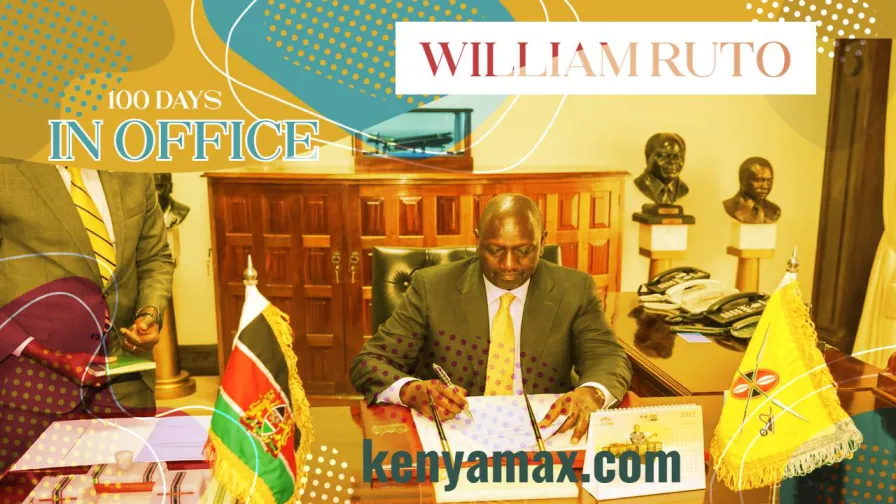President William Ruto's Progress 100 Days After Taking Office
President William Ruto made grand promises during his campaign and swearing-in ceremony. Here's what he has delivered so far within 100 days of inauguration.


President William Ruto hit the ground running by addressing the thorny issues that have undermined the lives of Kenyans and their democracy.
Drop in fertilizer prices
William Ruto announced a reduction in the prices of farm inputs including fertilizers, to reduce the food production cost.
Ruto said the price of fertilizers will drop from the previous Ksh 6,500 to 3,500 per 50 kg bag. The Kenyan president said that farmers would access the commodity within a week.
According to Ruto, the reduction of the cost of production would offset the prices of food better than subsidies that end up lining the pockets of politicians and business people instead of helping the citizens.
Additionally, the said subsidies amounting to billions within a few days create artificial shortages as businesses hoard the cheap commodities to benefit from subsequent price increases.
He stated that the price drop would also help increase maize production, most Kenyans' staple food. Currently, the country has a deficit of 10 million metric tonnes, with 4 million people facing starvation.
Approval of rejected judges.
President William Ruto approved judges selected by the Judicial Service Commission and irregularly rejected by the former president despite the court ordering them to be sworn in.
Ruto signed the executive order appointing the six judges, Weldon Korir, George Odunga, Aggrey Muchelule, Joel Ngugi, Judith Omange, and Evans Makori, clearing the last hurdle so they could start serving Kenyans.
"Signed an Executive Order appointing four Court of Appeal Judges and another for two Environment and Land Court judges," Ruto said.
Granting the Nation Police Service Financial autonomy.
Ruto signed an executive order granting the National Police Service financial autonomy with the Inspector General as the chief financial officer. According to Ruto, the financial independence of the police service would shield the national law enforcement management body from political arm-twisting by the Office of the President.
Executive order granting the Judiciary financial independence.
Ruto promised to give the Judiciary financial independence from the president's office, a critical issue that would boost its service delivery. On the same day, Ruto signed an executive order finalizing the process that had been delayed for decades as the former government fought to maintain its stranglehold on the Judiciary.
Dr. Ruto sworn in 6 judges nominated by the judicial service commission to head the Court of Appeal, Employment and Labour Relations Court, and the Environment and Lands Court.
Ruto had appointed the six judges on Day 0 of his inauguration as the president.
"To demonstrate my commitment to the independence of the judiciary, this afternoon, I will appoint the 6 judges already nominated for appointment to the court of appeal which was done 3 years ago by the Judicial Service Commission," he promised during the inauguration ceremony attended by 20 heads of states.
The former head of state Uhuru Kenyatta had refused to appoint them citing ethical concerns.
However, many percieved the decision as the ongoing battle between the executive and the judiciary after the latter overturned his election in 2017.
Since then, Uhuru's government had been at loggerheads with the justice system with President promising to "revisit" the judiciary after his victory was annulled.
Subsequently, Uhuru ignored many court rulings, including the one demanding the appointment and swearing in of the six judges.